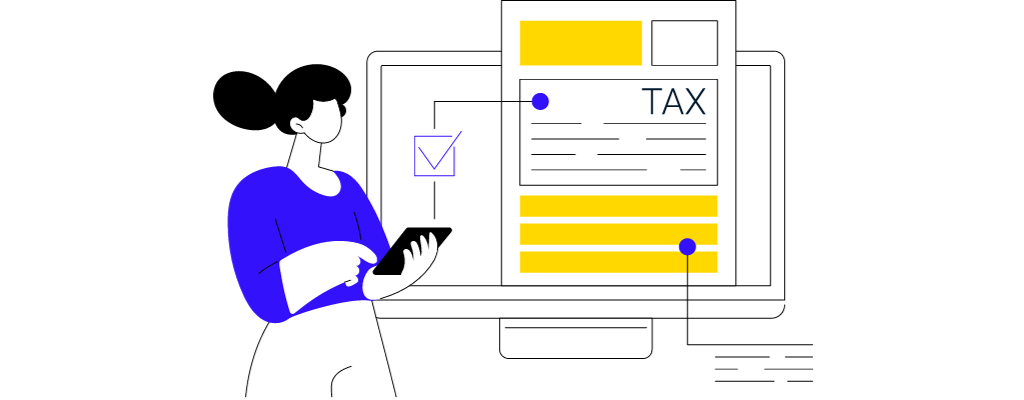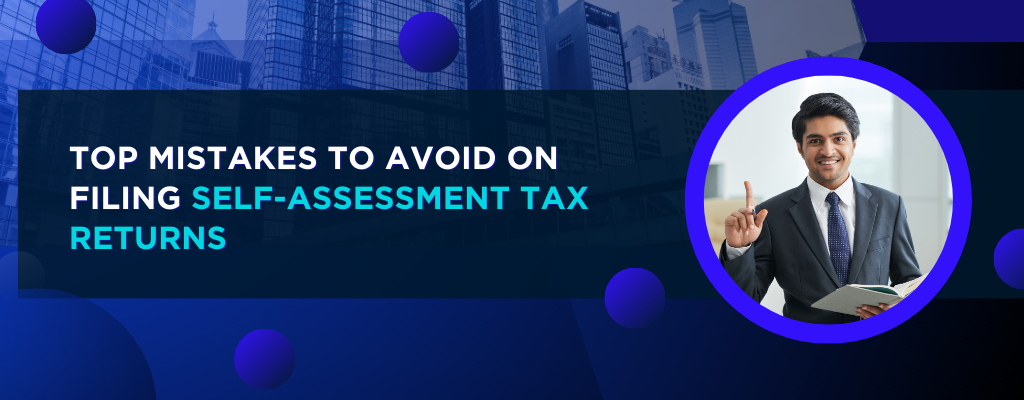Top Mistakes to Avoid on Filing Self-Assessment Tax Returns
HMRC uses the Self-assessment system to collect income tax. People who have made money that HMRC isn’t now aware of, like profits from a business, are typically required to record that money in a Self-Assessment tax return.
The individual’s earnings for the course of a tax year and the sources of those earnings are displayed on their tax return. Every year on January 31st, at midnight, most business owners must produce a tax return, send it to HMRC, and pay their tax obligation.
When is the deadline for the self-assessment?
Each year, the deadline for filing the self-assessment tax return is January 31. This indicates that you have until midnight on January 31, 2024, to file your taxes for 2022–2023. In addition, all taxes due for the previous tax year must be paid by this date (as well as your first instalment of account payments).
Recall that this deadline only applies if you submit your taxes online; if you want to file on paper, you must remember a different date.
Continue reading and note the crucial tax year dates in your notebook. There are also other significant dates for self-employed and corporation tax returns.

Mistakes to Avoid While Filing Your Self-assessment Tax Return
It’s common to find yourself rushing to finish your tax return when the deadline approaches. Many people commit the most typical mistakes in the annual rush to file before the Self-Assessment deadline. These helpful guidelines can help you avoid them.
Incorrect UTR or NI number
Entering the incorrect Unique Taxpayer Reference (UTR) or National Insurance (NI) number is one of the most prevalent tax return blunders. In some circumstances, these are completely excluded.
When you register for Self-assessment or form a limited company (Corporation Tax UTR), HMRC issues you a UTR. HMRC will not know who you are if you do not provide this 10-digit number when submitting your tax return. It would be best if you used your personal UTR for your Self-assessment return, as opposed to any Corporation Tax UTRs you may have.
Where you’ve lost or forgotten your UTR, you can look it up in your Personal Tax Account, the HMRC app, prior tax returns (where relevant), or other HMRC documents.
Non-disclosure of Pension Contributions
If you contributed to a pension during the tax year you are filing, you must include those contributions on your return. There will be a box for you to fill out regarding pension contributions. HMRC‘s website has more information concerning tax on private pension contributions.
Getting this right is critical because you may be denied tax relief if you claim to have contributed too little. HMRC may assess interest on any underpayment if you overestimate your donations.
Failure to Declare All Income Sources
Don’t only look at your earnings from employment or self-employment.
Rental income, profit (capital gains) from selling assets such as a second home or prized goods, income from investments in company shares – paid through dividends – and even tips or commissions are all taxable income streams.
You’ll also need to record any self-employed income support programme (SEISS) funds you got after April 6, 2021, and ‘donations’ from internet platforms like Patreon, Twitch, and Kofi.
You may be subject to taxation if you get child benefit and earn £50,000 or more. The high-income child benefit fee is a tax repayment paid at 1% of the benefit.
Making a Claim for Non-allowable Charges
It’s tempting to try to claim as much as possible to lower your tax burden, but tread carefully. There will be some things you cannot claim for, such as vacations or a new television. However, there are certain grey areas to be aware of.
Many business owners make the mistake of believing that some expenses are allowed for everyone. There will be some expenses that apply to your business but others that do not.
Fuel claims are a common example. Businesses that must travel frequently can claim fuel and travel expenses. A home-based firm that does not require travel is unlikely to be eligible for tax breaks.
Missing Out on Tax-free Allowances
By maximising your allowances, you can make more money before being required to pay taxes.
The personal allowance is £12,570 for the 2023-24 tax year. Earnings below this threshold are not taxed unless you earn more than £100,000.
In this situation, your personal allowance is cut by £1 for every £2 you earn above £100,000.
If you’re married or in a civil partnership and one earns less than the personal allowance, you may be eligible for the marriage allowance, 10% of one spouse’s allowance paid to the other spouse.
You may also be eligible for the personal savings allowance, which can be allocated to savings interest (although not Isas, which are tax-free).
Then there’s the dividend allowance, which is £5,000 in 2023-24 and can be utilised for dividends and investments.
Failing to Meet the Deadline
Putting everything off until the last minute increases the likelihood of mistakes being made, for which HMRC may punish you or of missing the deadline entirely, which may result in penalties.
One way to reduce the likelihood of filing an incorrect return is to plan and take your time filling out the form.
Begin by compiling all pertinent records and data, such as your P60 form (if you work), bills, bank statements, tenancy agreements, student loan statements, receipts and invoices, details of any benefits you have received, and any other information pertinent to your situation.
You may be subject to significant fines if you do not submit your online tax return and pay the taxes due by January 31.
Feel free to Connect with Us
Filing your taxes for the first time can be difficult and frustrating, and mistakes are common. Doing your research well in advance is crucial because incomplete assignments, late payments, and wrong information can prolong the process and incur fines. If you’re unsure how to submit your tax return correctly, seeking professional assistance can also be worthwhile.
We hope this article has helped you understand some of the most common problems people face while filing their self-assessment tax returns. Please feel free to comment below with any advice on self-assessment or contact us with any questions.

